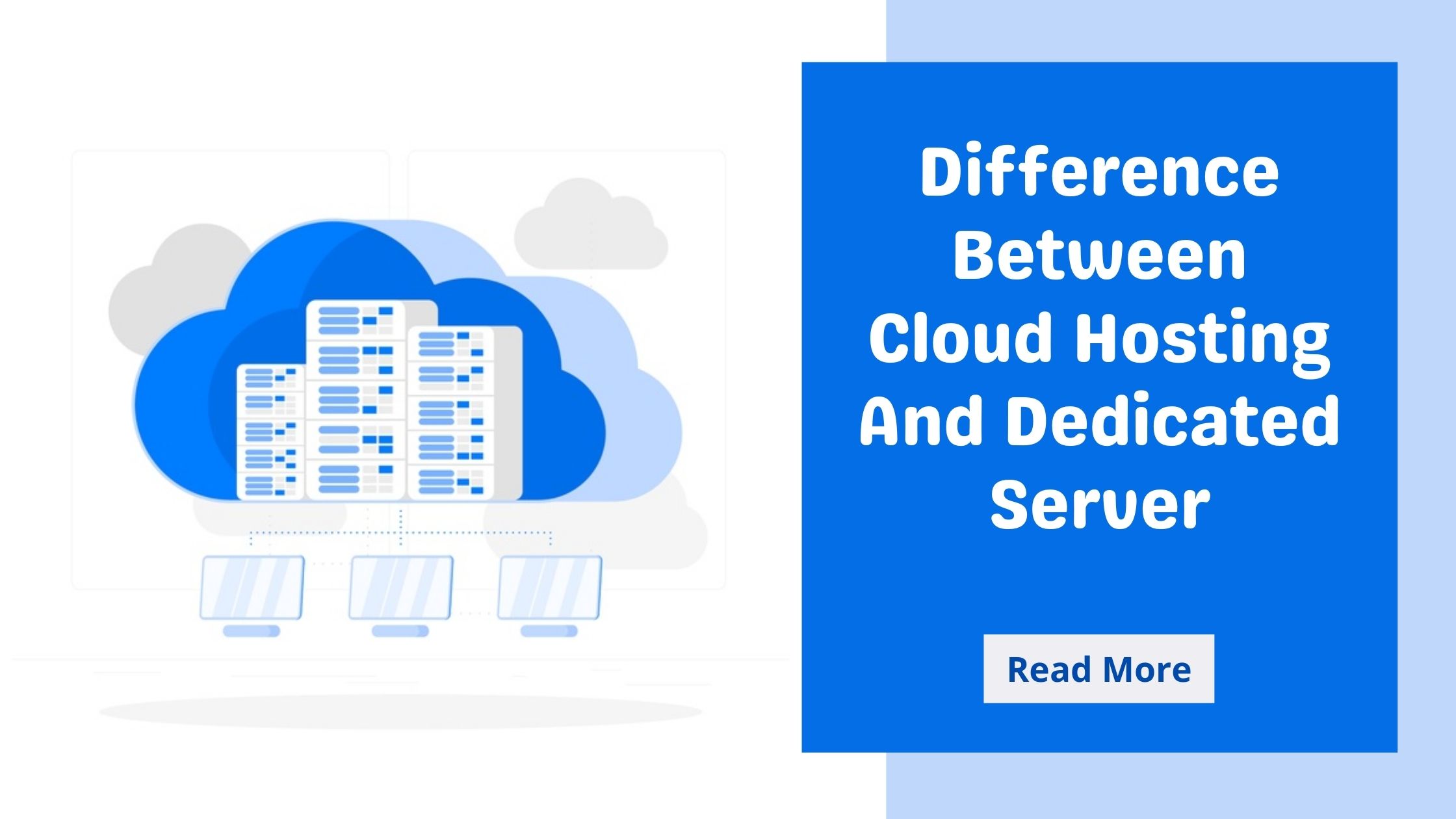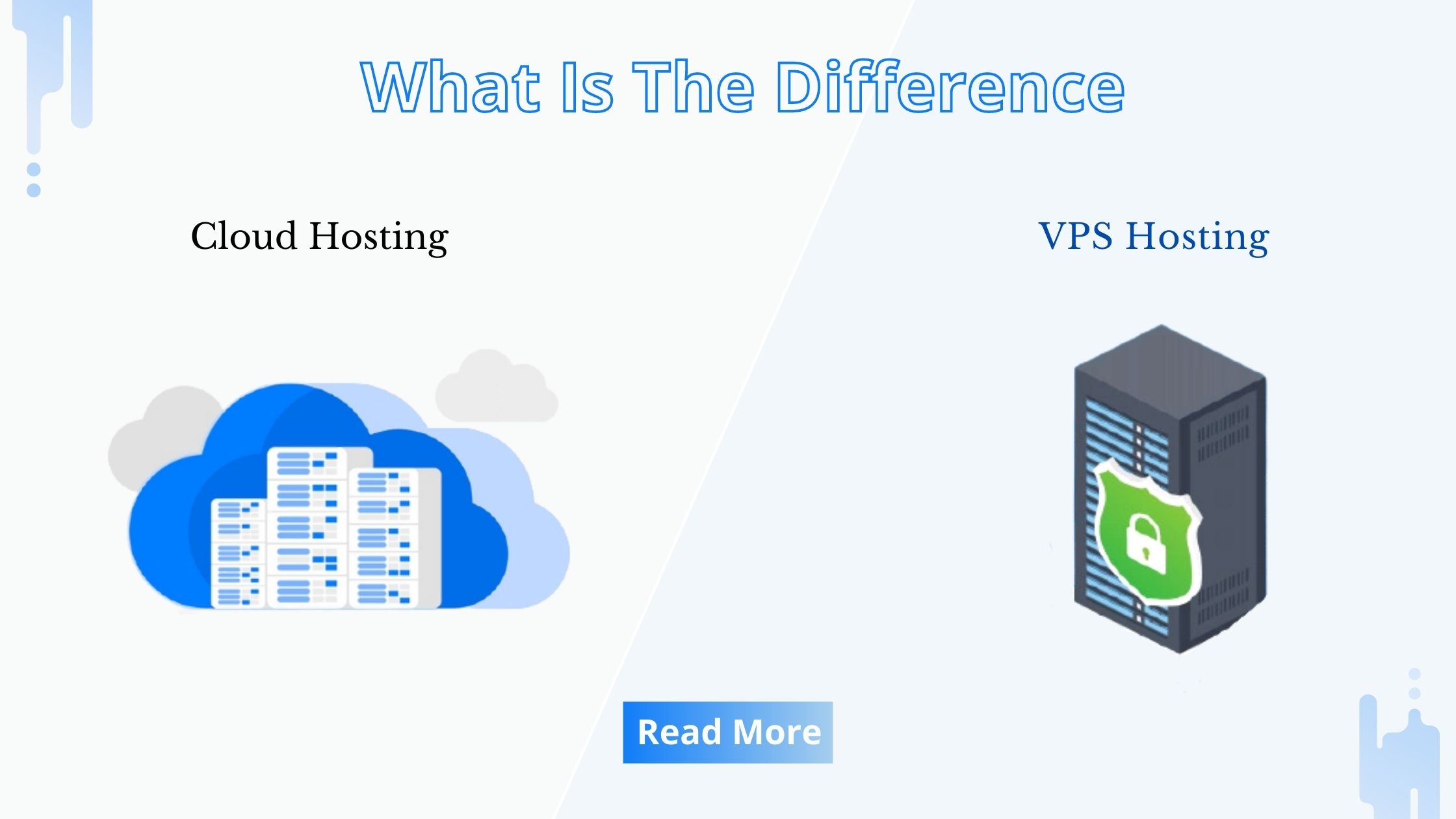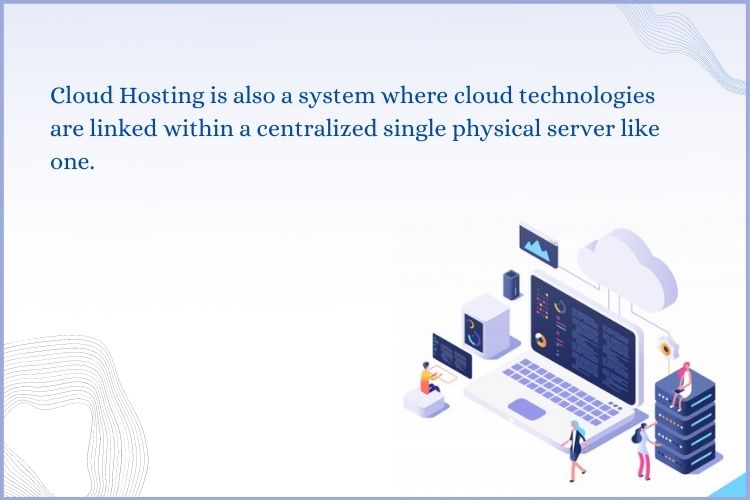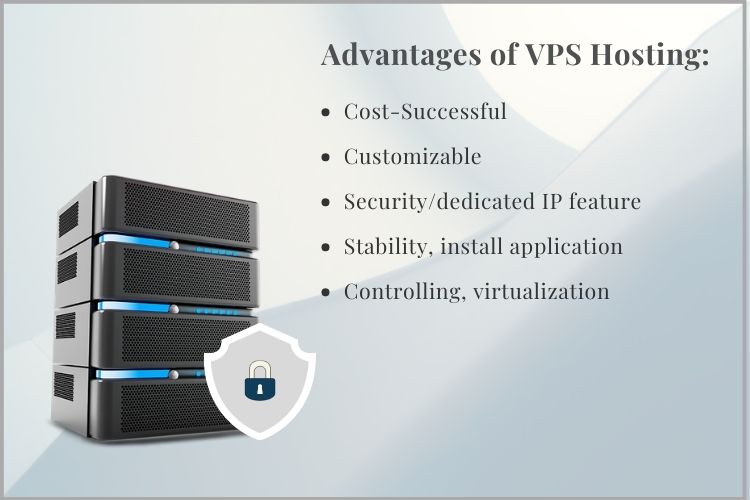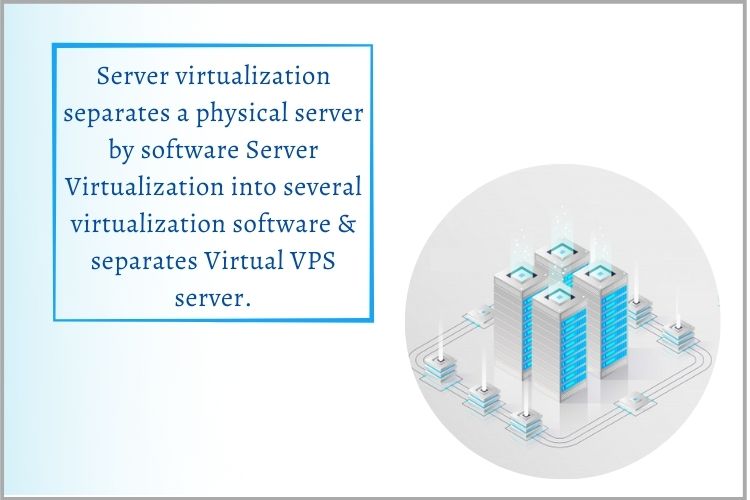Difference Between Cloud Hosting And Dedicated Server
For leveraging any business to the next level, the web application is the most essential one. People must know about hosting for small businesses, starting with Dedicated Server and then moving towards other hosting options. Big companies use traditional servers employing hardware virtualization. With the high amount of website traffic, using Cloud hosting can benefit more websites in this aspect. Understand the types of hosting options and choose an appropriate one for hosting your website.
When and Why Do You Need a Server?
For the web hosting plan, either with servers hosted on-premise or using a virtualized cloud server traffic is the prime aspect. Traditional web hosting involves the use of a dedicated server that can handle less amount of traffic. With an increase in web traffic, people can upgrade from in-house hosting to cloud servers to encourage more users.
What is Cloud Hosting?
When using a website, one has to grab the cloud server hosting for better usage. The benefit of cloud hosting involves the spread of data to several physical servers unlike using a single server. Rather than using limited computational resources like the RAM and memory, with a virtual machine environment, it is possible to scale these resources.
The advantages of cloud hosting over traditional hosting are more, and the prime part is scalability for big data applications. Upgrade from in-house hosting to cloud hosting for experiencing a better performance.
How Does Cloud Hosting Work?
Before employing a hosting technique, knowing how it works is essential. The cloud hosting technique makes use of a virtual server that employs cloud computing technology to disseminate data to multiple connected servers in various areas. It is one of the best cost-saving solutions that use connected virtual servers rather than customized web server software.
What are the advantages of Cloud Hosting?
Upgrading the website hosting from traditional to cloud hosting technique has many benefits. Understanding the advantages of cloud hosting plans like scalability, high performance, one can employ the hosting technique for high web traffic requirements. Companies who use CMS websites can experience better load balancing over the network.
What are the disadvantages of Cloud Hosting?
Unlike dedicated servers where the developers can build custom solutions, cloud hosting might not provide this service without payment. When a client uses the pay-as-you-go option under cloud hosting, the client can build customized solutions. For this purpose, the client must have experience in system administration for better usage.
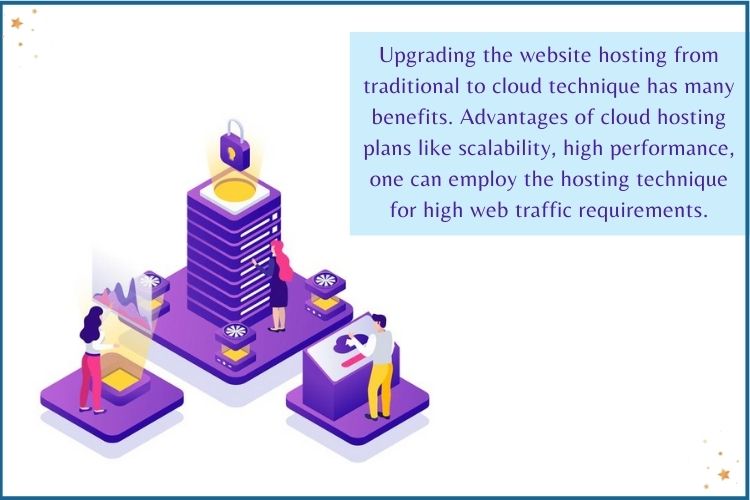
What is a Dedicated Server:
The dedicated server is one type of hosting technique where a particular website is hosted on a dedicated physical server. The dedicated server hosting meaning is that here the website can have entire privilege over the server resources. This method can be employed either purchased or rented entirely. People running a large-scale business will find virtual technology a beneficial one.
How Does Dedicated Server Hosting Work?
Some businesses require dedicated servers benefits for availing the entire functionality of the server. Therefore, companies afford to take the lease of servers from the hosting service providers. It enables the server to be customized and configured according to their requirements. Talking about the traditional advantages of dedicated servers, the system administrator has the flexibility to determine the traffic limit for websites.
What are the advantages of Dedicated Servers?
Companies that use dedicated servers can experience the key advantage of customization in their website, including installing alternative operating systems. For them to develop an application for their enterprise, they can have their server configured. It enables the developers to support legacy software online with certain runtime requirements.
What are the disadvantages of Dedicated Servers?
The disadvantage is that the system administrator is answerable for web security involving installed extension frameworks and operating systems. The web hosting companies rely upon the business website support over a third-party team where consistent reliability is not guaranteed.
Differences Between Dedicated Servers and Cloud Computing
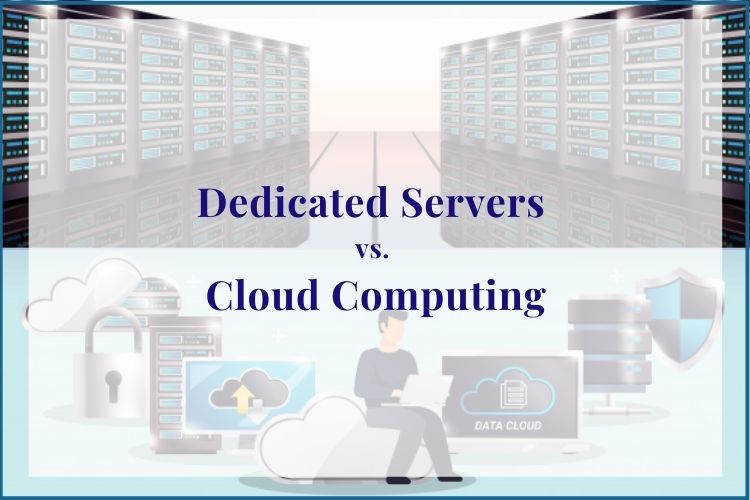
Comparing cloud hosting and dedicated servers based on scalability, performance, and other essential aspects, here are the comparison details of web hosting vs dedicated server.
1. Customization and Control
Under customization and control in cloud hosting, the websites sharing a server get access to the server resources. Whereas in dedicated servers, the administrative server control is provided, for the websites along with, the ability to install software for additional services.
2. Scalability of Resources
Using cloud architecture with shared resources, the server space is scalable with minimal effort. Dedicated servers provide physical hardware with strong technical resources and scaling as a time-consuming job.
3. Integration of Tools
In cloud hosting it involves less cost, multiple utilities are provided. But with dedicated servers, one has to pay a lot to integrate servers with additional utilities.
4. Cost Affordability
The Cloud computing model has the cost-savings advantage with prices slightly cheaper as the resources are scalable. The dedicated cloud server pricing has a high-cost profile as it provides a dedicated network interface.
5. Security
Approaching a trusted service provider for dedicated servers is highly secure. Compared to a tenant environment where the possibility to breach server security is quite more, dedicated servers are better in this aspect.
6. Performance
The processors of dedicated servers are dedicated to hosting websites or applications, enabling high hosting performance. Companies requiring cloud-based hosting can upgrade to a network interface card for additional functionality.
7. Scale Your Business Hosting Needs
A drive is added to the server. Cloud-based servers can be scaled and expanded easily for suiting business needs.
8. Storage
The storage provided by the SAN is virtually limitless for cloud-based servers. With the multi-hub setup, massive and instant scalability is possible.
9. Migration
Dedicated or hybrid cloud architecture provides seamless migration that involves a single tenant or multi-tenant environment. In dedicated servers, the server infrastructure involves more planning.
10. Operations and Server Management
Some dedicated server environment providers offer fully managed services including scaling, upgrades, and maintenance. Cloud service providers offer the advantage of solutions automation.
11. Level of Control
A dedicated server provides complete control over the server whereas the cloud server has limitations.
12. Availability
Compared to dedicated servers, cloud server hosting manages maximum network uptime for websites by assigning nodes automatically during node failures.
13. Data Transfer Speed
Cloud servers provide less transfer speed to store and process data due to the virtual database.
14. Ease of Management
Dedicated servers are the physical servers that provide the user with a managed server for their website. The support of technical experts is available around the clock to assist during technical issues. In the case of cloud servers, the server is an unmanaged server where the cloud is used by multiple users for their websites.
15. Better Reliability
The reliable cloud computing service has multiple servers in hand to support any point of failure. But the dedicated server is like a single server where the collapse of server and data occurs during a single point glitch. Here, the backup of data can help to survive failures.
16. Backup with Ease
Unlike dedicated servers, changes made in the cloud servers are reflected in the backup database. One need not save the changes separately in the backup server, saving more time.

Conclusion:
Cloud Server and Dedicated Servers both have advantages and disadvantages. Small or Medium businesses should host a website or web application on a cloud server. A cloud service provider like Ideastack provides you with high scalability, flexibility, and security. Our Cloud service does not include any hidden cost and you do not ought to pay extra. Big firms choose the cloud for their online business because of its exceptional features.
FAQ
Who should opt for Cloud Hosting?
Cloud Hosting is suitable for you if:
• You’re running a small, medium, or large business.
• The number of visitors to your website every day is between 25k and 50k.
• The content on your site is dynamic.
What are the types of cloud computing?
Public Cloud Server
A public cloud is a subdivided server among users where they can have access to the facilities they require.
Private Cloud Server
A private cloud is similar to a single property with only one user utilizing the area. They have a higher sense of control over their surroundings.
Hybrid Cloud Servers
When you operate both public and private cloud environments simultaneously, you’re using hybrid cloud, which is commonly misunderstood with hybrid infrastructure. When the two are combined, a custom environment can be created that provides superior performance, control, flexibility, and security at a reduced cost.






